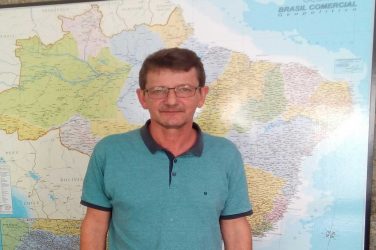 Children and adolescents are frequently found working in markets and slaughterhouses in municipalities of wild Pernambuco. This fact led the Ministry of Labor to file civil class actions against 13 municipalities of the region, which refused to sign a Conduct Adjustment Term to eradicate child labor.
Children and adolescents are frequently found working in markets and slaughterhouses in municipalities of wild Pernambuco. This fact led the Ministry of Labor to file civil class actions against 13 municipalities of the region, which refused to sign a Conduct Adjustment Term to eradicate child labor.
According to prosecutor José Adílson Pereira da Costa, responsible for the case, the most grave situation is reported in slaughterhouses where minors are responsible for tasks like cutting viscera and catching animals’ blood. “It’s a very painful task, not every adult can do it. Imagine it for children. “
However, according to Costa, in free markets we find the most frequent labor and the most difficult labor to combat, which is children and adolescents carrying customers’ shopping in wheelbarrows, which is called “freight.”
“In these cases, the child works for society, not for a specific employer,” explains the prosecutor. When children are taken by their parents who usually also work in the market, it is easier to identify the person responsible for the illegal labor, but many of them are there alone, which hinders the oversight operation.

Children in this activity are on average aged 12 and 13 years, according to the prosecutor, but the Ministry of Labor already found 10-year-old children carrying customers’ shopping in wheelbarrows. “Often children carry more weight than their own body weight,” he declared.
Under Brazilian law, children under 16 are prohibited to work. They are only allowed to participate in apprenticeship programs from 14 years old. The law also forbids their work “in places, where their professional training, and their physical, mental, moral and social development may be harmed. They are also forbidden to attend working hours and places that do not permit their school attendance.”
In addition, Brazil also ratified Convention 182 of the International Labor Organization (ILO), which establishes the worst forms of child labor and actions to remove children from it.
“Just to begin mentioning, because of the weight carried, the sunny conditions, the accident risk, the task of carrying shopping is prohibited for children under 18 years old, for the load weight and unhealthy conditions,” said the prosecutor.
An argument often used by families is that the child needs to learn the task to get a job in the future and help pay household bills as soon as possible. But, in Costa’s view, this habit has the opposite effect.
“The child who works since early years repeats the cycle of poverty and will repeat it again with their family. They will have poor school performance, they will not be able to hold good positions in the labor market. The cycle can only be broken with a minimal support for families so that children do not have to work.”
Authorities from the 13 municipalities aforementioned in the report refused to talk.
São Francisco River
The Brazilian government launched a plan to revitalize the drainage basin of the São Francisco river, one of the most important watercourses in Brazil and South America, running through five states and 521 municipalities in the country.
The goal is to promote the sustainable use of natural resources, improve environmental conditions and the amount as well as the quality of water available various purposes.
The initiative aims at providing the conditions to further the region’s ecological and economic zoning and consolidate conservation units. The plan is also designed to create new protection areas, strengthen environment law enforcement and solid waste management efforts, and expand a program to support environment preservation granting benefits to extremely poor families in areas regarded as crucial for environment protection.
National Integration Minister Hélder Barbalho says: “The plan isn’t an isolated initiative, but will rather rely on the joint efforts of a number of government agencies. It brings together the agenda for ensuring the quantity and quality of the water [from the river].
“We’re engaging both private and public, rural and urban sectors, in efforts aimed at the protection and control of springs, sanitation, water infrastructure, irrigation, monitoring, and conservation units.”
According to the minister, from 2016 to 2019, the focus will be turned towards actions designed to complete sanitation and supply projects, in a bid to ensure the population’s water supply.
“They’re short-run measures. The actions to be implemented between 2017 and 2026, in turn, will be detailed in the next 90 days.” In this period, organizations will have their suggestions heard in hundreds of municipalities along the river.
“Ensuring the transposition is not enough. It is important that the São Francisco river should be revitalized,” Hélder Barbalho concluded.
ABr









